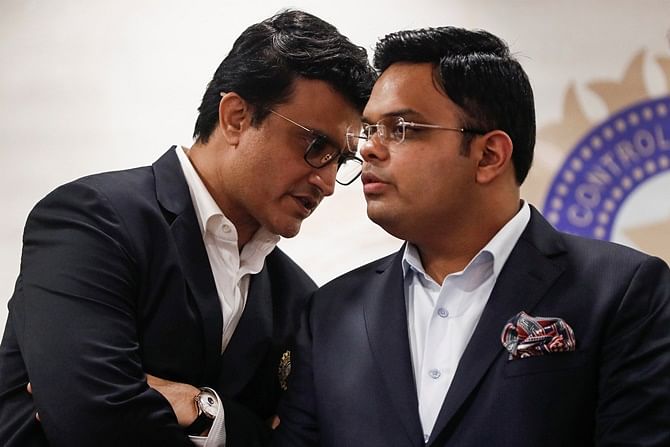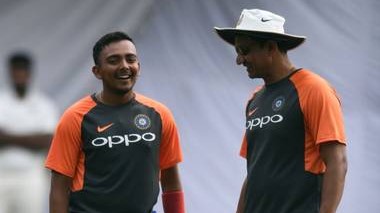 The Indian cricket board (BCCI) has now knocked on the doors of the Supreme Court in order to make an important change in their constitution to ensure President Sourav Ganguly and secretary Jay Shah complete their three-year terms without the mandatory cooling-off period, prescribed by Justice Lodha panel.
The Indian cricket board (BCCI) has now knocked on the doors of the Supreme Court in order to make an important change in their constitution to ensure President Sourav Ganguly and secretary Jay Shah complete their three-year terms without the mandatory cooling-off period, prescribed by Justice Lodha panel.
According to a report by the Times of India, the application was filed by Treasurer Arun Dhumal. These changes were approved at the AGM on December 1 and were seeking leave of the SC, as per its August 9, 2018 order, to implement them by changing the constitution.
The rules of the current constitution, approved by the Supreme Court, a three-year cooling-off period is mandatory for anyone who had served two terms in state cricket associations or the BCCI. So according to this, Ganguly and Shah will have to stay away from the board and its activities starting July and June respectively.
It was also proposed that a person should be kept away from the board if s/he has been convicted in a criminal case and has been sentenced to three or more years in prison. The BCCI proposed that a person should be disallowed from becoming a member-only if s/he has been convicted in a criminal case and sentenced to three or more years in prison.
"The draft (constitution) was prepared by persons who did not have ground-level experience of the functioning of this three-tier structure in which the transition of cricket administrators is stage-wise, which is in the larger interest of the game of cricket. Any provision which has a direct or an indirect effect of restricting persons with rich and varied experience, whereby they have acquired and strengthened organizing capacity, finance generating capacity and administrative skills will be to the detriment of the game of cricket," the BCCI said.
The BCCI also wants to do away with the rule of asking for SC approval every time a change is made to the constitution which was effected by the vote of three-fourths of the members of the general body.
"Neither preparation of draft constitution by the CoA nor a direction for its adoption (by the SC) can either preclude, restrict or hinder the right of the general body to amend the constitution in the exercise of its amending powers conferred under the constitution itself and passed in a duly convened meeting of the general body. It is submitted that in the exercise of the said power of amendment, which is indisputably conferred upon the general body, the BCCI has amended some provisions of its constitution," it said.



